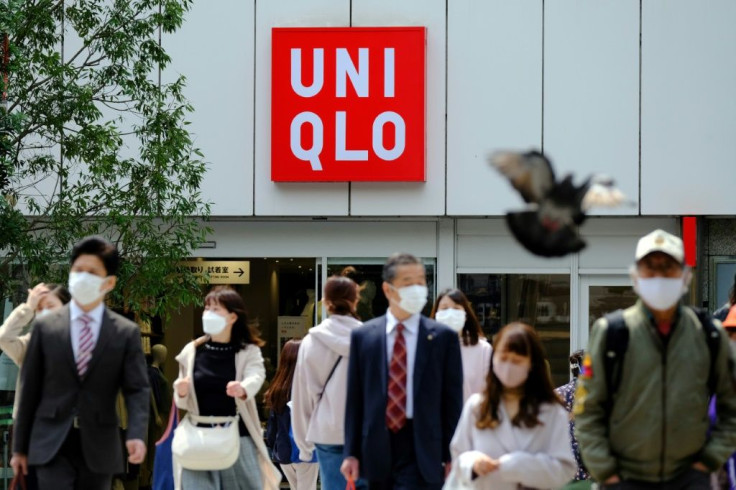Uniqlo Operator Fast Retailing Raises Profit Outlook
Uniqlo's parent company Fast Retailing said Thursday it expects a stronger rebound in full-year operating profit driven by a solid performance in East Asian countries hit less hard by virus lockdowns.
The Japanese clothing empire forecast 2020/21 operating profit of 255 billion yen ($2.3 billion) -- up slightly from its previous estimate of 245 billion yen.
That marks a rise of 70.7 percent from the year before, when business began to be hit worldwide by the Covid-19 pandemic with many shops forced to close for extended periods.
In the first six months of this financial year, Fast Retailing logged a 0.5 percent dip in revenue year-on-year to 1,202.8 billion yen.
But operating profit in the same period was up 22.9 percent from 2019/20 at 167.9 billion yen.
"Performance in most regions of Uniqlo International, as well as within Global Brands, reported declines in revenue and profits due to the severe impact of Covid-19," the firm said in a statement.
"However, a strong rise in profit at Uniqlo Japan and in the Uniqlo Greater China region, both of which saw a more limited impact from the pandemic, contributed to the increase in group consolidated profit."

After years of aggressive expansion, Fast Retailing is vying to be the world's most valuable clothing firm, challenging Spanish fast-fashion giant Inditex -- which owns Zara -- for the top spot.
Earlier this year the Japanese group's market capitalisation overtook that of Inditex for the first time, but it has since fallen back behind.
Fast Retailing said on Thursday it would continue to open new stores and expects to have 2,337 Uniqlo stores worldwide by the end of August, of which 813 will be in Japan.
The group also owns fashion retailer Theory and French brands Comptoir des Cotonniers and Princesse Tam Tam.
At a press conference, Fast Retailing's billionaire founder Tadashi Yanai was asked about the group's stance on using cotton from the far western Chinese region of Xinjiang.
H&M and other fashion brands have been pilloried in China for statements voicing concern about allegations of forced labour in cotton fields in Xinjiang.
"Of course, we take a close interest in all factories or production of cotton. If we find such problems, we will immediately terminate our business transactions," Yanai said.
"But beyond that, it becomes a political issue rather than a human rights issue. So, no comment."
© Copyright AFP 2024. All rights reserved.







